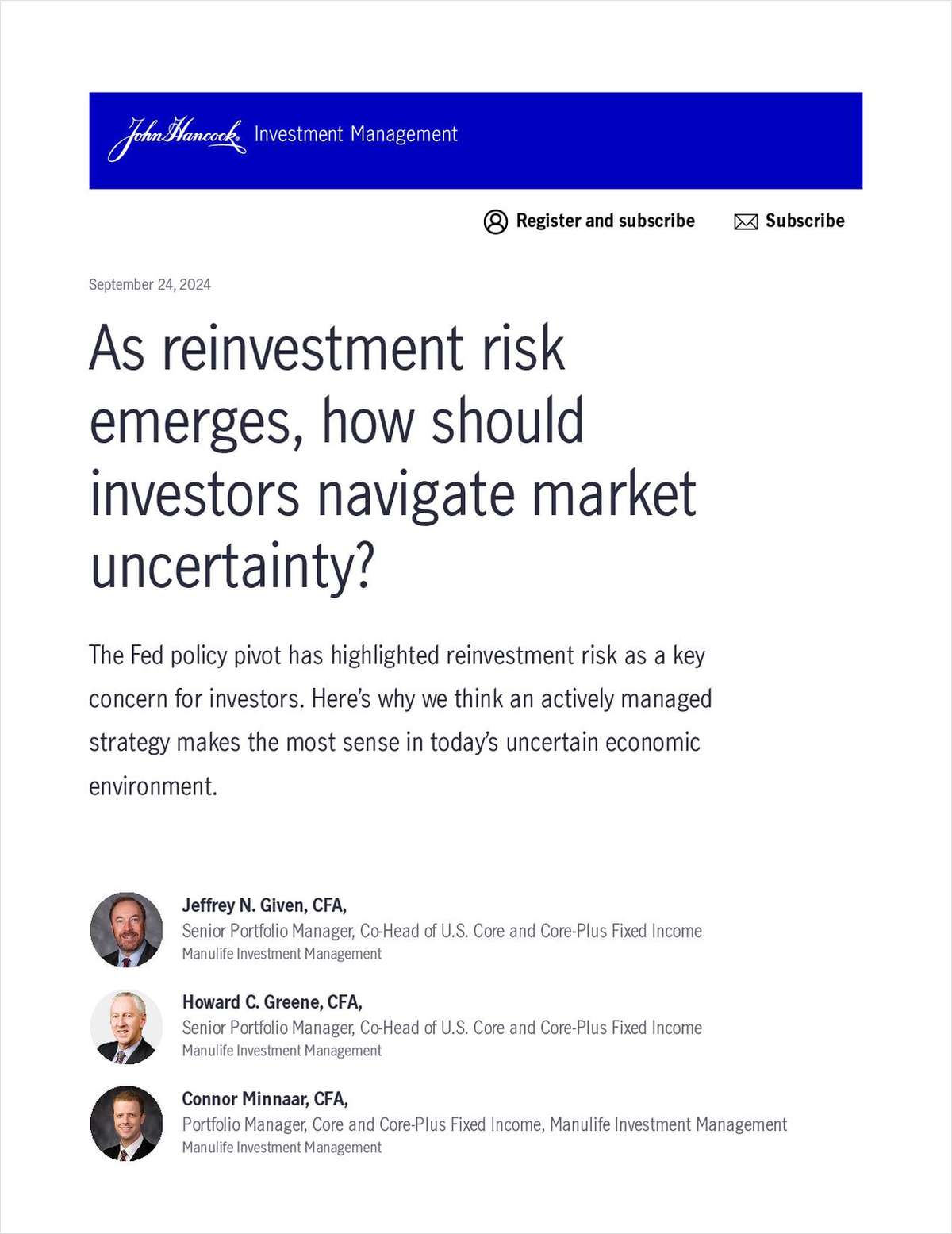Sept. 24, 2004 — In their search for higher profits, Americans have been looking abroad.
Mutual funds that invest in international companies have raked in money at a near record pace this year, according to Financial Research Corp. Meanwhile, shareholders have been rewarded with returns that have topped domestic stock funds in recent months.
Money managers say it always makes sense to have some exposure to foreign companies in order to diversify portfolios. Now is a particularly good time to look overseas, they say, because economic growth in some areas is stronger than in the U.S., and stock valuations are more attractive. The relative weakness of the dollar provides an added benefit because it boosts gains realized overseas.
International and global mutual funds generated net sales of $51.5 billion through July, approaching the record $58 billion set in 1994, FRC said. Sales should slow over the rest of the second half of the year as the U.S. economy picks up speed, but they will still clock in at nearly $77 billion by year end, the Boston-based fund tracker said.
International and global mutual funds posted higher returns than their domestic counterparts in the 12 months ended in August. Global equity funds returned 12.6% on average and international stock funds rose 18.6% during that span, while the average U.S. stock fund gained 8.8%, data from Standard & Poor's showed.
Funds that invest overseas outperformed U.S. funds through the first eight months of 2004, too, but by slimmer margins. The average international stock fund gained 0.4% through last month, compared with losses of 1.1% for the average global stock fund, and 1.6% for the average U.S. stock fund.
Their performance helps explain the popularity of foreign funds, fund industry observers said.
"Return chasing is a bit of what's happening here," said Kurt Umbarger, a vice president with T. Rowe Price's international unit who provides information on its foreign funds to investors.
Greater gains in foreign stock markets relative to the U.S. added to the allure of international funds through June, said Owen Concannon, an FRC analyst. "Investors usually chase performance, and right now overseas markets are outperforming U.S. markets" in general, he said earlier this month.
Recent figures for several market gauges illustrate that. For example, the Morgan Stanley Capital International Europe, Australasia, Far East Index was up 1.8% for the year through Thursday, while the Nikkei 225 gauge of Japanese stocks had risen 3.2%. By comparison, the Standard & Poor's 500 index, which excludes foreign stocks, had gained 0.15%.
Through June, sales of international and global funds were concentrated in three fund companies — American Funds, Vanguard and Fidelity — which accounted for nearly 60% of the industry's inflows during that span, Concannon said. American's funds feature good performance and low costs, which tends to make them popular with financial advisors who sell funds, he added.
Vanguard also benefits from its funds' low expenses, as well as the popularity of its index funds, Concannon said. The company closed one of its international funds — Vanguard International Explorer (VINEX) — to new investors last month because it had taken in about $500 million since mid-January, swelling its assets to $1.4 billion.
Fidelity attracts a lot of money because it's global and international funds perform well, and because it offers a wide variety of them, Concannon said.
Interest in global investing has also helped niche international managers First Eagle and Julius Baer, according to Concannon. In 2003, those companies posted $6 billion in net sales, while accounting for about 15% of the inflows into international equity funds, he said.
Although more money has been moving into funds that invest in foreign stocks, the number of funds had fallen from a peak of 1,006 in 2000 to 747 at the end of August, FRC said. Many fund companies have been liquidating foreign funds, or merging them into other, larger offerings in recent years, it said. FRC attributed the reorganizations to earlier poor stock market performances around the world, which weakened fund performance and cash inflows.
Vanguard generally recommends that investors keep up to 20% of their assets in stocks outside the U.S., including emerging markets, said Catherine Gordon, a company principal who heads its investment counseling and research department.



